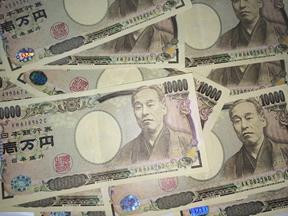Despite the yen's overall weakness this year, it could still emerge as a favored safe-haven asset for investors in the face of the upcoming U.S. presidential election.
Historical data shows that in previous U.S. elections, the yen has outperformed traditional safe-haven assets such as the U.S. dollar, gold, and the Swiss franc.
Donald Trump's lead in the polls has intensified market uncertainty, prompting investors to seek safer investment options. According to data compiled by Bloomberg, as of November 5th, just ahead of the election, the yen has once again become the top-performing currency during times of extreme market stress.
Naomi Fink, Chief Global Strategist at Nikko Asset Management, explained that the yen remains a safe haven and added that if market risks decrease, the yen would likely appreciate, and yen-funded carry trades would be unwound.
Rising Uncertainty: Is the Yen a "Safe Haven"?
Japan's Liberal Democratic Party suffered a crushing defeat in the election held on the 27th, causing the yen to weaken. Shigeru Ishiba has stated that he will not resign, meaning the LDP will need to find new coalition partners.
Some analysts believe Japan's political scene may face weeks of debate before a new government is formed, adding to the significant interest rate differentials between Japan and other major economies, which could place considerable selling pressure on the yen.
Nevertheless, some investors argue that the yen has critical advantages. Japan's $200 billion current account surplus, the yen's abundant liquidity, and the country's relatively low inflation rate position the yen, the world's third most traded currency, as a unique safe-haven asset.
Moreover, concerns over other traditional safe-haven assets have bolstered the yen's appeal. The prospect of an expanding U.S. fiscal deficit has weakened confidence in both the dollar and U.S. Treasuries. Neither Donald Trump nor Kamala Harris have presented deficit-reduction plans during their campaigns, heightening the risks for bond investors.
Stephen Miller, an advisor at GSFM, a subsidiary of Canada's CI Financial Corp. with over 40 years of market experience, remarked that if the U.S. bond market struggles with deficit risks, U.S. Treasuries may no longer be the safest asset, nor the dollar.
Lower tariff risks also work in favor of the yen. Pictet Wealth Management noted that due to potential trade conflicts with the U.S., the euro may fall to parity against the dollar. The Swiss franc lacks the liquidity of the yen, and gold prices, trading near historic highs, may have limited room to rise if markets crash.
Morgan Stanley: The Dollar's Dominance Is Hard to Challenge
Of course, not all analysts agree with the notion of the yen as a safe haven.
Morgan Stanley argues that U.S. Treasuries are better equipped to withstand sell-offs driven by political risk. Given that the dollar accounts for 88% of the daily $7.5 trillion foreign exchange market, the dollar's dominance is difficult to challenge.
Peter Boockvar, Chief Investment Officer at Bleakly Financial Group in New Jersey, stated that while the yen once had classic safe-haven status, it was now more tied to interest rate differentials, casting doubt on whether it could maintain its previous standing.




